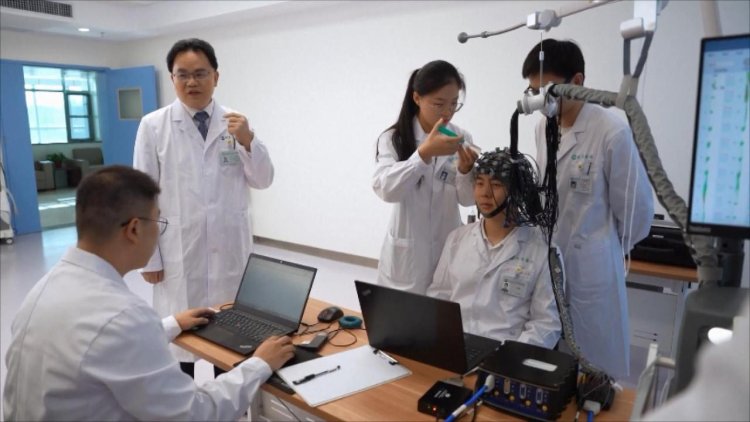Hubei establishes pricing for brain-computer interface treatments
Hubei Province in central China has introduced the nation’s first pricing program for medical services that utilize brain-computer interface (BCI) technologies, helping to expedite the integration of this advanced technology into everyday life....

The Healthcare Security Administration of Hubei Province has set the maximum prices for the implantation and removal of invasive BCI implants at 6,552 yuan and 3,139 yuan, respectively. Additionally, the price cap for non-invasive BCI adaptation services is established at 966 yuan.
Professor Jiang Xiaobing from the neurosurgery department at Union Hospital, which is part of the Tongji Medical College of Huazhong University of Science and Technology, noted the transformative impact BCI technologies are having on patient care. "For patients with hemiplegia, blindness or aphasia, we can use BCIs to restore some of their physiological functions. We can also use BCI technologies to treat patients with Parkinson's disease, epilepsy or Alzheimer's disease, for which we currently don't have very effective therapies. So, BCIs bring hope to these patients," Jiang stated.
He emphasized the importance of the next three to five years for the evolution of BCI technologies. "The next three to five years are a critical period for the development of BCI technologies. Their applications to treatments for diseases like cancer and paralysis will certainly differ, so relevant products must go through the necessary procedures before reaching the market," he added.
In March, the National Healthcare Security Administration released a guideline for pricing neural system care services, recognizing BCIs as a distinct category. This initiative aims to enhance the clinical application of innovative technology for patient benefit, especially given the rapid advancements in BCI technologies in recent years.
The guideline specifies pricing for both invasive and non-invasive BCIs, taking into account their unique characteristics. The NHSA asserted that the guideline would facilitate the rapid application of established BCI technology in clinical settings and offer a framework for local authorities across the country to oversee related medical services.
Thomas Evans for TROIB News
Discover more Science and Technology news updates in TROIB Sci-Tech












